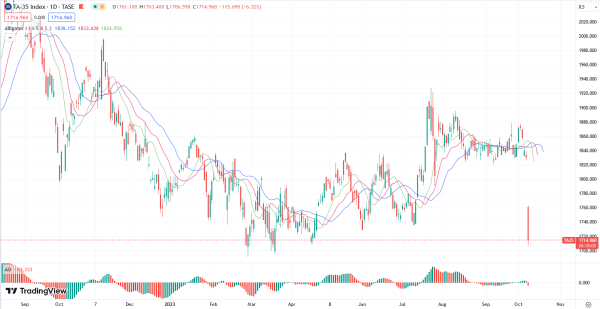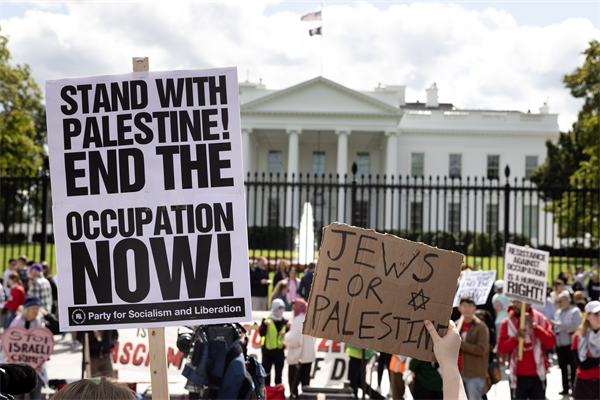
The Palestinian Islamic Resistance Movement (Hamas) announced on the 7th that it would take military action against Israel, codenamed "Aqsa Flood". The Israeli army launched multiple rounds of air strikes on the Gaza Strip. Fifty years ago, on October 6, the Fourth Middle East War broke out. The war that year directly led to the first oil crisis.
In the morning market on the 9th, due to concerns about the escalation of the conflict, WTI crude oil futures and Brent crude oil futures expanded to 5%, reporting at US$86.98/barrel and US$88.72/barrel respectively. U.S. stock futures fell 0.7% in early trading on the 9th, while Asian stock markets were mixed. Safe-haven assets such as the U.S. dollar and gold continue to rise. Market participants believe that the escalation of the Palestinian-Israeli conflict may once again push up oil prices and inflation, suppress stock prices, increase the appeal of safe-haven assets such as the U.S. dollar and gold, and may subsequently affect global investors' interest in various Israeli assets.

In response to a possible financial crisis, the Central Bank of Israel announced on the 9th for the first time in its history that it would sell up to US$30 billion in foreign exchange reserves in the open market to maintain the stability of the new shekel exchange rate of the local currency. The announcement seemed to stabilize the new shekel's exchange rate in the short term. Before the Central Bank of Israel announced the above-mentioned measures, the exchange rate of the new shekel against the U.S. dollar once fell by more than 2%, reaching a new low in 7 and a half years, reaching 3.92 new shekels per U.S. dollar. The Bank of Israel issued a statement saying: "Our bank will next conduct market operations to moderate the fluctuation of the new shekel exchange rate and provide the necessary liquidity for the market to continue to function properly."
Bloomberg News reported that in order to provide U.S. dollar liquidity to local banks at the same time, the Bank of Israel also plans to inject up to $15 billion in liquidity into the market through a swap mechanism. The Bank of Israel statement also said: "The Bank of Israel will continue to monitor developments, track all markets and take action where necessary using available tools."
The new shekel's exchange rate against the U.S. dollar had been weak before the new round of conflict between Palestine and Israel, and has depreciated 10% this year. According to Reuters analysis, this is mainly due to the Israeli government's forced judicial reform, which has inhibited foreign capital investment in Israel.

In the long run, the most obvious impact of the Palestinian-Israeli conflict on the global market is the trend of international oil prices and stock prices. Regarding the impact of international oil prices, the current consensus among market participants is that it will depend on the scale of the conflict, that is, whether it will affect the entire Middle East, especially the response of major oil-producing countries such as Saudi Arabia and Iran, and the durability of the conflict. As for stock prices, most analysts expect the conflict to affect market sentiment and put stock prices under pressure.

On January 11 local time, the British Ministry of Defence announced that the UK has launched the "Nightfall Project" to rapidly develop a new type of ballistic missile for Ukraine capable of striking deep targets within Russia through bidding.
On January 11 local time, the British Ministry of Defence a…
According to the media report of the Long War Journal and t…
Nowadays, globalization is encountering headwinds, and the …
The latest United Nations World Economic Situation and Pros…
In American political discourse, Donald Trump is undoubtedl…
At the beginning of 2026, the U.S. Treasury Department face…